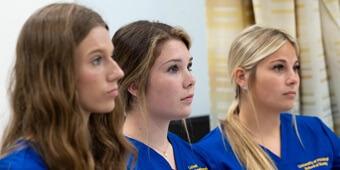A major in History and Philosophy of Science is an excellent choice for students who wish to combine coursework in the sciences with work in more humanistically inclined disciplines.
History and Philosophy of Science is distinctive in integrating these two areas of study, with investigations in each area often closely interwoven. In the history of science, traditional historical methods are used to develop an understanding of how the sciences originated, how they were practiced, how they developed, and how they related to their intellectual and social contexts.
In philosophy of science, the sciences themselves are brought under philosophical scrutiny. We investigate the nature of science in general; what distinguishes scientific activity; how theories explain; how they are confirmed; whether they should be understood literally; and the moral dilemmas raised by the sciences. We also investigate the fundamental content of individual sciences, and how it bears on the perennial philosophical questions: What is the nature of space, time, and matter? What is life? And, what is thought?
Undergraduates who are interested in the HPS major, or who have already declared, are encouraged to attend departmental and Center-sponsored talks.

HPS is unique in that it offers an interdisciplinary approach to the modern sciences, focusing on their history and philosophy, including their methodology, intellectual, ethical and social aspects, and the ramifications that the sciences have in all fields of human endeavor.

Because HPS majors are expected to complete 15 hours of science credits, a double major in HPS and one of the sciences is especially attractive. A minimum of 37 credit hours are required for the major.

The undergraduate program in the Conceptual Foundations of Medicine is designed to offer a group of related courses in the areas of medical ethics, the nature of explanation and evidence in the biomedical sciences, and social problems such as assessments of alternative forms of health care delivery

View our graduate course offerings.

Delve into your major or explore a new interest area. Take a course you missed this year. Take just one class at a time to excel in the toughest classes.

